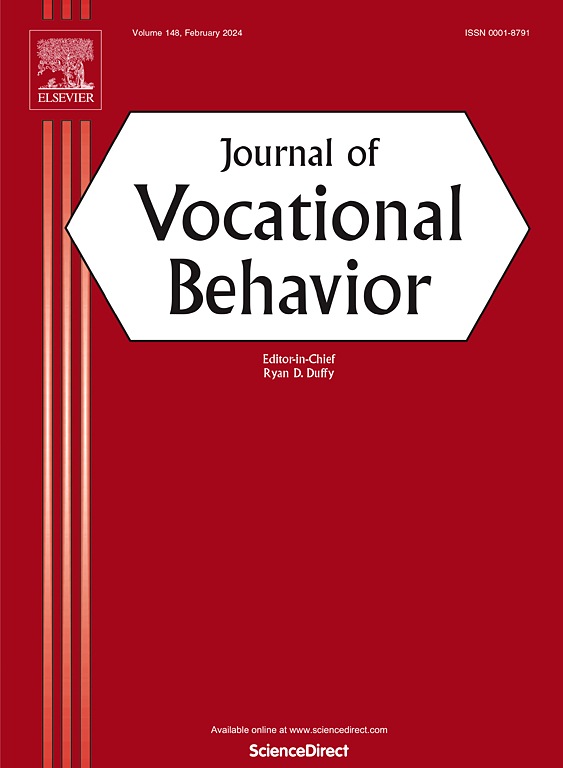One who wishes to wear the crown, must bear its weight: How performance pressure benefits career-prospective employees in organizations
IF 5.2
1区 心理学
Q1 PSYCHOLOGY, APPLIED
引用次数: 0
Abstract
Performance pressure is not uncommon in the field of human resource management, and it stands as a constant companion to those aspiring to advance their careers. Drawing on the appraisal theories of emotion and literature on fear and career prospects, this research explores how and when performance pressure fosters work-goal progress. Across two time-lagged, multi-industry field studies with full-time employees, we demonstrate that performance pressure intensifies mental preoccupation with work by triggering fear of performance failure, which in turn promotes work-goal progress. Furthermore, these positive serial mediation effects (performance pressure → fear of performance failure → mental preoccupation with work → work-goal progress) are moderated by employees' career prospects within organizations, being more pronounced among those with higher career prospects. Theoretically, this work deepens the understanding of the positive impacts of performance pressure and broadens its influencing mechanisms and contextual moderators. Practically, the findings can inform organizations in leveraging performance pressure to serve the best interests of both individuals and the organization. Limitations and future directions are also discussed.
欲戴王冠,必承其重:组织中的绩效压力如何惠及有职业前景的员工
绩效压力在人力资源管理领域并不罕见,它始终伴随着那些渴望提升职业生涯的人。本研究借鉴情绪评估理论以及有关恐惧和职业前景的文献,探讨了绩效压力如何以及何时会促进工作目标的实现。通过对全职员工进行的两项时间滞后、跨行业的实地研究,我们证明,绩效压力会引发对绩效失败的恐惧,从而加强心理上对工作的专注,进而促进工作目标的实现。此外,这些积极的序列中介效应(绩效压力→对绩效失败的恐惧→对工作的心理专注→工作目标进展)受到员工在组织中的职业前景的调节,在那些职业前景较好的员工中更为明显。从理论上讲,这项研究加深了人们对绩效压力积极影响的理解,拓宽了绩效压力的影响机制和背景调节因素。在实践中,研究结果可以帮助组织利用绩效压力为个人和组织的最佳利益服务。此外,还讨论了研究的局限性和未来发展方向。
本文章由计算机程序翻译,如有差异,请以英文原文为准。
求助全文
约1分钟内获得全文
求助全文
来源期刊

Journal of Vocational Behavior
PSYCHOLOGY, APPLIED-
CiteScore
13.10
自引率
5.40%
发文量
85
期刊介绍:
The Journal of Vocational Behavior publishes original empirical and theoretical articles offering unique insights into the realms of career choice, career development, and work adjustment across the lifespan. These contributions are not only valuable for academic exploration but also find applications in counseling and career development programs across diverse sectors such as colleges, universities, business, industry, government, and the military.
The primary focus of the journal centers on individual decision-making regarding work and careers, prioritizing investigations into personal career choices rather than organizational or employer-level variables. Example topics encompass a broad range, from initial career choices (e.g., choice of major, initial work or organization selection, organizational attraction) to the development of a career, work transitions, work-family management, and attitudes within the workplace (such as work commitment, multiple role management, and turnover).
 求助内容:
求助内容: 应助结果提醒方式:
应助结果提醒方式:


